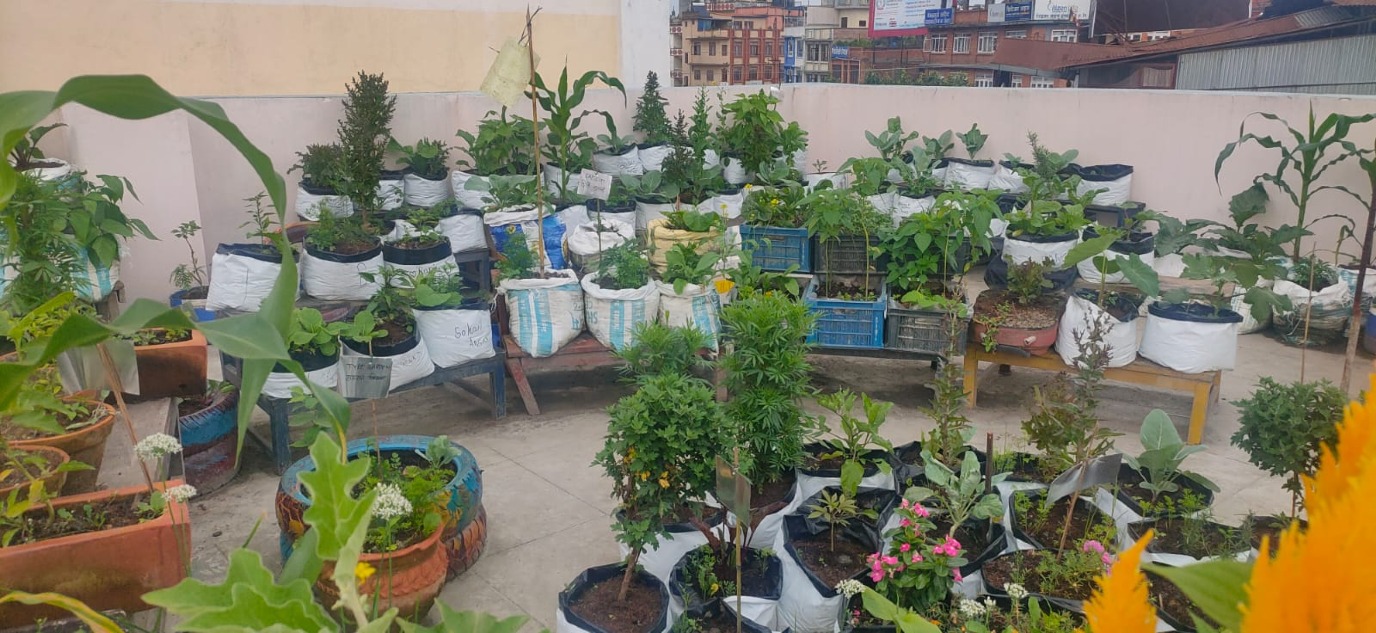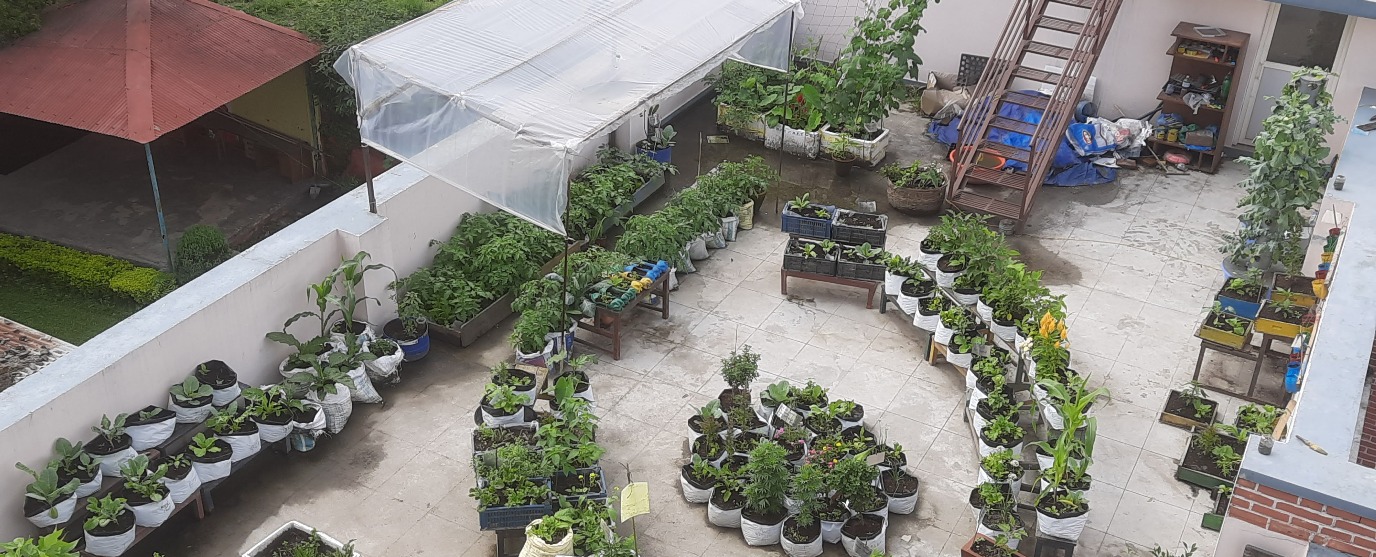Mega-onderzoek onthult de voor- en nadelen van stedelijke landbouw voor het halen van de Duurzame Ontwikkelingsdoelen (SDG’s).

Stedelijke landbouw is in opkomst. Maar wat zijn de voor- en nadelen? Draagt het bij aan het bereiken van de SDG's in 2030? Een baanbrekende studie van dr. Prajal Pradhan (Universiteit Groningen) en 9 collega’s biedt nu voor het eerst een uitgebreide analyse van de impact van stedelijke landbouw op duurzame ontwikkeling. Met ‘machine learning’ beoordeelde dit onderzoek ongeveer relevante 1.450 publicaties. Het biedt nieuwe inzichten in de relatie tussen stedelijke landbouw en de Duurzame Ontwikkelingsdoelen (SDG’s) van de Verenigde Naties.
Dr. Pradhan: ‘Ons onderzoek biedt solide bewijs voor hoe stedelijke landbouw bijdraagt aan algemene duurzaamheid door voedsel, educatie en sociale ruimte te bieden en bij te dragen aan biodiversiteit. Het destilleert kennis uit de beschikbare wetenschappelijke literatuur over stedelijke landbouw om de positieve en negatieve effecten ervan op duurzaamheid te belichten. Deze systematische synthese van bewijsmateriaal is uniek.’
De studie laat zien dat stedelijke landbouw nauw verbonden is met alle 17 SDG's, waarbij het 81 positieve effecten laat zien en er 51 negatieve effecten zijn. De analyse benadrukt dat stedelijke landbouw aanzienlijk kan bijdragen aan duurzame ontwikkeling, maar dat het niet vanzelfsprekend gunstig is. De impact op duurzaamheid hangt grotendeels af van specifieke omstandigheden.
VN-top voor de toekomst 2024. Stedelijke landbouw en de Duurzame Ontwikkelingsdoelen (SDG’s)
In september 2024 organiseert de Verenigde Naties Summit of the Future ( Top voor de Toekomst). Een essentieel onderdeel van deze top is het versnellen van de inspanningen om bestaande internationale verplichtingen na te komen, waaronder de Duurzame Ontwikkelingsdoelen (SDG's), die in 2015 door de VN zijn aangenomen. Het hart van de Agenda 2030, aangenomen door alle VN-lidstaten in 2015, zijn de 17 SDG's. Ze vormen een krachtige oproep tot actie voor landen wereldwijd, en bieden een routekaart voor een betere wereld tegen 2030.
Ondanks wereldwijde toezeggingen is geen enkel land momenteel op koers om alle SDG's te behalen. Versnelling van de vooruitgang vereist een beter begrip van hoe verschillende sectoren, waaronder stedelijke landbouw, bijdragen aan de doelen. Het potentieel van stedelijke landbouw om positieve effecten te hebben op duurzame ontwikkeling is groot.
|
Het belang van stedelijke landbouw
Stedelijke landbouw is het kweken, verwerken en distribueren van voedsel binnen en rond stedelijke gebieden. Het omvat een breed scala aan activiteiten, waaronder gewassenteelt, tuinbouw, boslandbouw, bijenteelt, veeteelt en aquacultuur. Stedelijke landbouw speelt een belangrijke rol bij het verbeteren van voedselzekerheid in steden door wereldwijd aan de voedselproductie bij te dragen en werkgelegenheid te bieden aan de stedelijke bevolking. Naast voedselproductie biedt stedelijke landbouw een scala aan voordelen, zoals het verbeteren van levensonderhoud, het bevorderen van sociale ruimtes, het versterken van groene infrastructuur, het ondersteunen van biodiversiteit en het leveren van diverse ecosysteemdiensten. |
Discussie en implicaties
Dr. Pradhan: ‘De belangrijkste conclusie van ons onderzoek is een dieper begrip van hoe we de kansen van stedelijke landbouw kunnen benutten en hoe de uitdagingen in relatie tot duurzaamheid aangepakt kunnen worden. Deze inzichten kan je gebruiken om stedelijke landbouw te bevorderen om een duurzame transformatie te bereiken. Het is echter cruciaal om de uitdagingen aan te pakken, wat kan worden bereikt door de beste praktijken in stedelijke landbouw toe te passen.’
Het onderzoek laat zien dat de bijdrage van stedelijke landbouw aan duurzaamheid afhangt van de specifieke werkwijze en omstandigheden. Om het volledige potentieel van stedelijke landbouw te realiseren, is het essentieel om manieren te vinden om de negatieve effecten beperken. Dit omvat het aanpakken van problemen zoals vervuiling, het waarborgen van eerlijke toegang, het efficiënt beheren van watervoorraden en het minimaliseren van energie- en hulpbronnengebruik. Daarnaast zijn er oplossingen nodig om stedelijke landbouwpraktijken aan te passen aan specifieke lokale omstandigheden en uitdagingen.
Kansen in stedelijke landbouw
1. Veilig, voedzaam en vers voedsel: Stedelijke landbouw kan stedelijke voedselsystemen versterken door lokaal vers en voedzaam voedsel te produceren, afhankelijkheid van externe voedselbronnen te verminderen en voedselkilometers te minimaliseren.
2. Kennis: Het bevordert kennis over gezond eten, duurzame praktijken en milieubeheer.
3. Ecosysteemdiensten, biodiversiteit en milieubaten: Stedelijke landbouw kan bijdragen aan ecosysteemdiensten zoals bestuiving en bodemvruchtbaarheid, het kan de stedelijke biodiversiteit ondersteunen en diverse milieuvoordelen bieden.
4. Sociale inclusie: Stedelijke landbouw bevordert sociale inclusie en gemeenschapsvorming door diverse gemeenschapsleden te betrekken bij voedselproductie.
5. Werkgelegenheid en inkomen: Het creëert werkgelegenheid en extra inkomstenbronnen voor stedelijke bewoners.
6. Psychisch welzijn: Betrokkenheid bij stedelijke landbouw kan de geestelijke gezondheid en het welzijn verbeteren door recreatieve en therapeutische ruimtes te bieden.
Uitdagingen en obstakels voor stedelijke landbouw
Ondanks de voordelen kampt stedelijke landbouw met verschillende obstakels die moeten worden aangepakt om de bijdrage aan duurzame ontwikkeling te maximaliseren:
1. Exclusieve toegang: Vaak zijn de voordelen van stedelijke landbouw beperkt tot bevoorrechte groepen, wat sociale ongelijkheid kan vergroten.
2. Vervuiling en gezondheidsrisico's: Stedelijke landbouw kan gezondheidsrisico's opleveren als voedsel wordt verontreinigd door verontreinigende of gevaarlijke stoffen die je in de stad aantreft.
3. Waterzekerheid: Efficiënt waterbeheer is cruciaal, aangezien stedelijke landbouw lokale bij slecht beheer de watervoorraden kan belasten.
4. Hoog energie- en hulpbronnenverbruik: Intensieve stedelijke landbouw kan veel energie en hulpbronnen vereisen, wat sommige milieubaten teniet kan doen.

Artikel
Urban agriculture matters for sustainable development (in: Cell Reports Sustainability)
Prajal Pradhan, Daya Raj Subedi, Kshitij Dahal, Yuanchao Hu, Prakriti Gurung, Sijal Pokharel, Sagar Kafle, Biplav Khatri, Sudeeksha Basyal, Monika Gurung, and Aruna Joshi. Urban agriculture matters for sustainable development. Cell Reports Sustainability, 1:100217, 2024. [DOI: 10.1016/j.crsus.2024.100217]
Publicaties in de media over dit onderzoek
Nederlands
Onderzoek onthult voor- en nadelen van stedelijke landbouw voor het halen van Duurzame Ontwikkelingsdoelen (in: BP Nieuws)
Onderzoek onthult voor- en nadelen van stedelijke landbouw voor het halen van Duurzame Ontwikkelingsdoelen. (in: Boeren.nu)
Stadslandbouw kan bijdragen aan algemene duurzaamheidsdoelen (in: Agriholland.nl)
Voor en nadelen aan landbouw in Steden (in: Groentenieuws)
Engels
Global study reveals urban agriculture’s impact on Sustainable Development Goals ahead of UN Summit of the Future 2024 (in: City Farmer News, Canada)
Global study reveals urban agriculture's impact on SDGs ahead of UN Summit of the Future 2024 (in: The Himalayan)
Global Study reveals urban agriculture’s impact on SDGs ahead of UN’s Summit of the Future 2024 - (in: The DMN News)
Back to the land in the cities. Urban agriculture can be Nepal's solution to falling food production, can create jobs, recharge groundwater and preserve open spaces (In: Nepali Times)
Media in het Nepalees:
Pardafas
Ratoparti
Online Khabar
Nepal Khaber
Maryadanews
Sunakhari News
NayaSadak
Kavre Press
Nepal Khoj
Arthatantra

